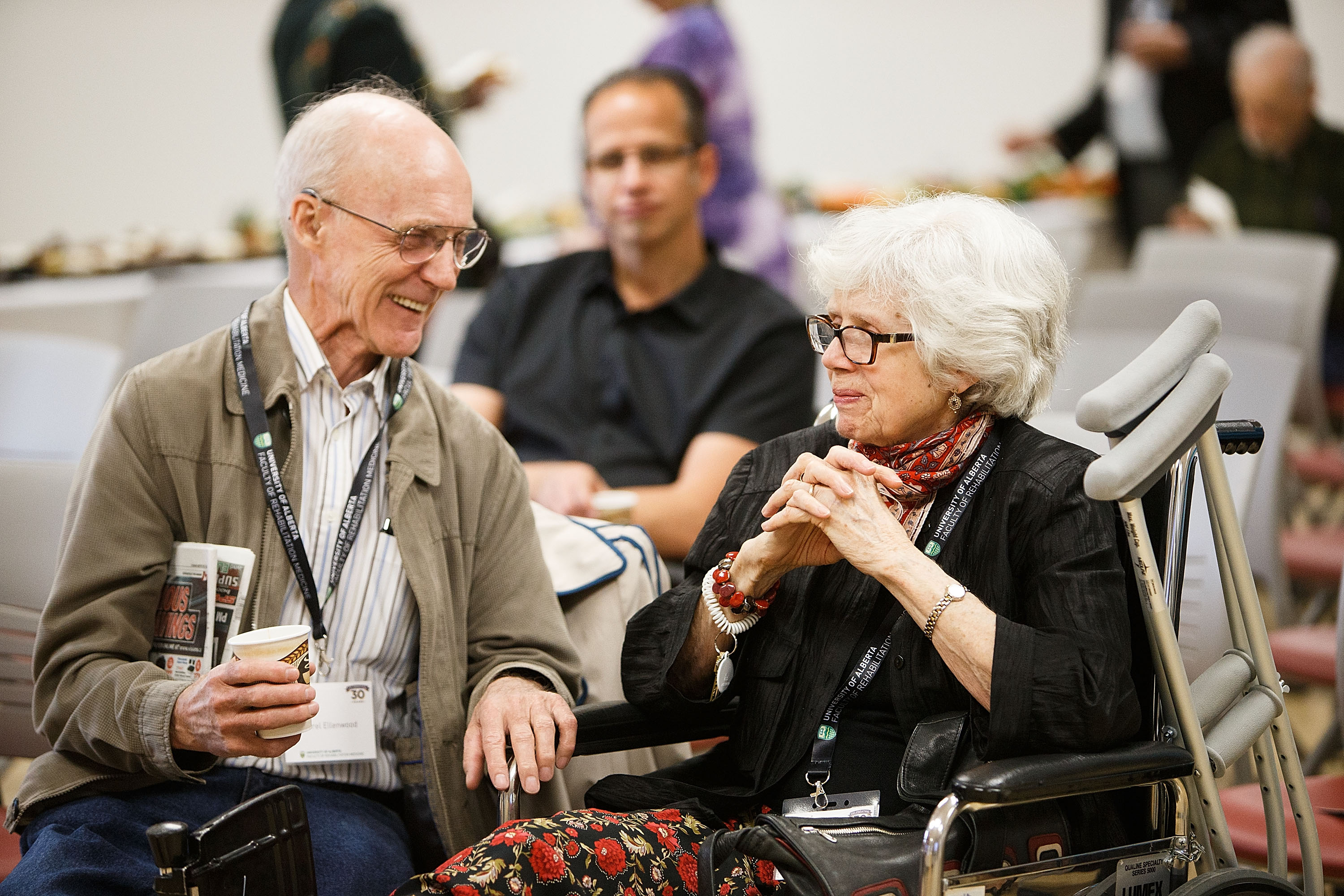“It was a game-changer for me”: Long-time donor’s early experiences inspire him to keep giving back
Kate Dawson - 27 August 2020

Darrel Ellenwood (left) with Julia Boberg, wife of ISTAR Founder Einer Boberg. (Photo: Iconium Inc.)
Darrel Ellenwood is a self-described “low-key retired guy” whose journey with the Institute for Stuttering Treatment and Research (ISTAR) began long before the organization even existed.
In the 1970s, Ellenwood was a participant in one of the early intensive research clinics run by ISTAR Founder Einer Boberg. During this time, he gained the tools he needed as a stutterer to improve his speech with treatment by completing various tasks including experiments that required him to cold-call businesses and talk to strangers on the street. He remembers the research clinic as being very intense, but credits it with his ability to have a successful career and family.
“It was a game-changer for me,” says Ellenwood. “It improved my life tremendously.”
That experience sparked his desire to help others like himself. He discovered the newly founded ISTAR while reading the newspaper and immediately wanted to contribute to the organization in whatever way he could.
Ellenwood says he donates because he wants everyone who needs ISTAR’s services to be able to access them. He believes the work ISTAR does is important because increasing social demands make it more difficult for people with a stutter to participate in everyday activities.
While he admits he thinks it sounds cliché to want to “give back,” Ellenwood keeps donating because he knows how difficult living with a severe stutter can be.
“Being able to function with a reasonably good job and a family was an amazing thing for me. To be able to help somebody who is in what seems like an impossible situation, I’m just more than happy to try and help.”
As a volunteer, he can see the direct benefit of his contributions at work.
“I think students being able to go through these clinics is just so valuable. It’s just obvious the benefit of it. I wish I could add more.”
When asked about his involvement as a volunteer, Ellenwood said, “I’m really interested in working with people who have a severe stutter. They’re the people I’m interested in because that used to be me. I hope I can serve as a source of inspiration, demonstrating that improvement is possible.”
Ellenwood believes that the work ISTAR does is now more important than ever. If you were to ask him why someone should donate to ISTAR, he would reply, “It’s probably the best money that you could ever spend. I know stuttering is a small group of people, but the help is just so valuable.”